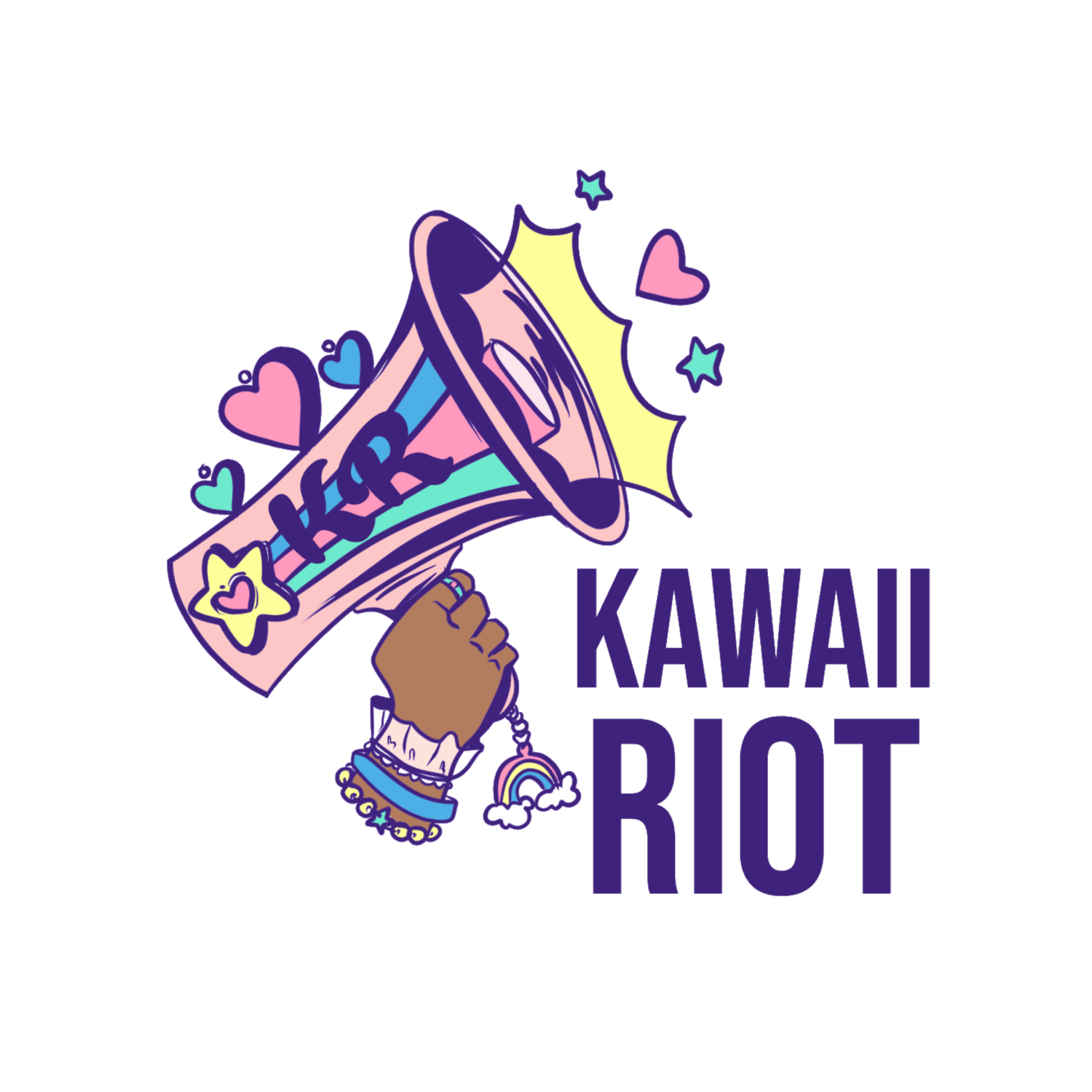Kawaii Riot 101: Emotional Labor
Emotional Labor - The significant amount of energy used to control feelings when dealing with others not conscious nor respectful of that energy in various settings. Commonly exhibited in a social, creative, corporate, or professional setting.
Personally, a lot of things take a great deal of emotional labor to do. Being on Facebook, Instagram, reading about the shit show we’re currently in (and *cough* being in the United States) all take a great deal of emotional energy. Emotional labor matters in our daily lives and it's important to protect your energy; after all you can’t take care of others if you’re drained.
People of color especially have to navigate spaces where they don't dominate the space: in fashion, politics, and general social groups. When hot button topics come up like Black Lives Matter or the poor treatment of the LGBTQ+ community these topics are generally dismissed by a decent amount of influencers unless there’s something to be gained from it. It takes a lot to maintain composure. When we do finally get to a place where we have conversations about inequalities and disadvantages that BIPOC have, it’s a tiring exchange. Sometimes it goes in one ear and right out the other. When a group of friends talk about important social issues, one may not try to reflect on the struggles. For example, a trans person could ask for their proper name to be used, and get dead named instead, or a Black barista could be forced to grin and bear it when a customer touches their hair. People put up with rude gestures to maintain peace and decency.
Application of Emotional Labor Today
This term was coined in 1983 by sociologist Arlie Hochschild in her book: The Managed Heart Commercialization of Human Feeling. (Specter 2019) It can be applied when someone makes discriminatory comments and you’re forced to swallow your dignity in order to get a job done and maintain that facade of ‘peace’.
It’s mentioned often as well when discussing interpersonal relationships, social movements, and matters of mental health. All three of these things require people to be emotionally invested and stable to get something done with an adequate amount of grace—none of which is easy (especially when the world is literally on FIRE.)
Some people expect emotional labor to be owed to them because it’s a part of the job. It’s not outright spoken, but it is something you feel you must do in order to maintain employment. Without emotional labor, I’m 1000% sure there would be way more emotional outbursts at work.
In civil society, you have to keep your head above water by holding in your emotions and not letting them show. When dealing with this we have one thing in common: we feel the need to maintain this image of being unswayed by those emotions. If we do let emotions take over, 99.9% of the time that spells trouble for our careers (or it means that we’re going to be in the open and often unforgiving job market again.)
In the corporate sphere, if you have a manager that does nothing when you’re harassed by colleagues it increases the demand for emotional labor. You can’t speak out for your own well-being. If you do there is likely retaliation. This could include shortened hours, a hostile environment, or lasting emotional strain. You may even be put onto a working team with a person that constantly disrespects your boundaries on purpose. In order for you to survive you need that job, so you do it at the price of your mental and emotional well-being. You depend on your abilities to stay calm in the midst of adversity to get the job done.
Remember, emotional labor is the thing that keeps us from cursing a person out when they disrespect us in any way, and managing those emotions can be difficult. Recognizing the signs of emotional labor allows us to see when those boundaries are being reached or ignored, and together, we can work toward a future where it isn’t so common.
Steps to combat emotional labor
How can we make emotional labor a less strenuous thing for those around us? Well, the answer is simple. Remember the saying: ”Be nice to everyone because you don’t know what’s going on in someone’s life”? When you go out to pick up food from the grocery store or take-out from a restaurant, please (for the love of all things pink) be nice. Workers are just trying to survive in an uncertain world, and we all just need a bit of kindness.
GOING FORWARD
Check out some more resources about Emotional Labor
Emotional Labor: What It Is and What It Is Not by Sharmin Tunguz Ph.D.
CITATIONS
Specter. (2019, November 20). “Emotional Labor” Is Not What You Think It Is. Vogue.Com.



